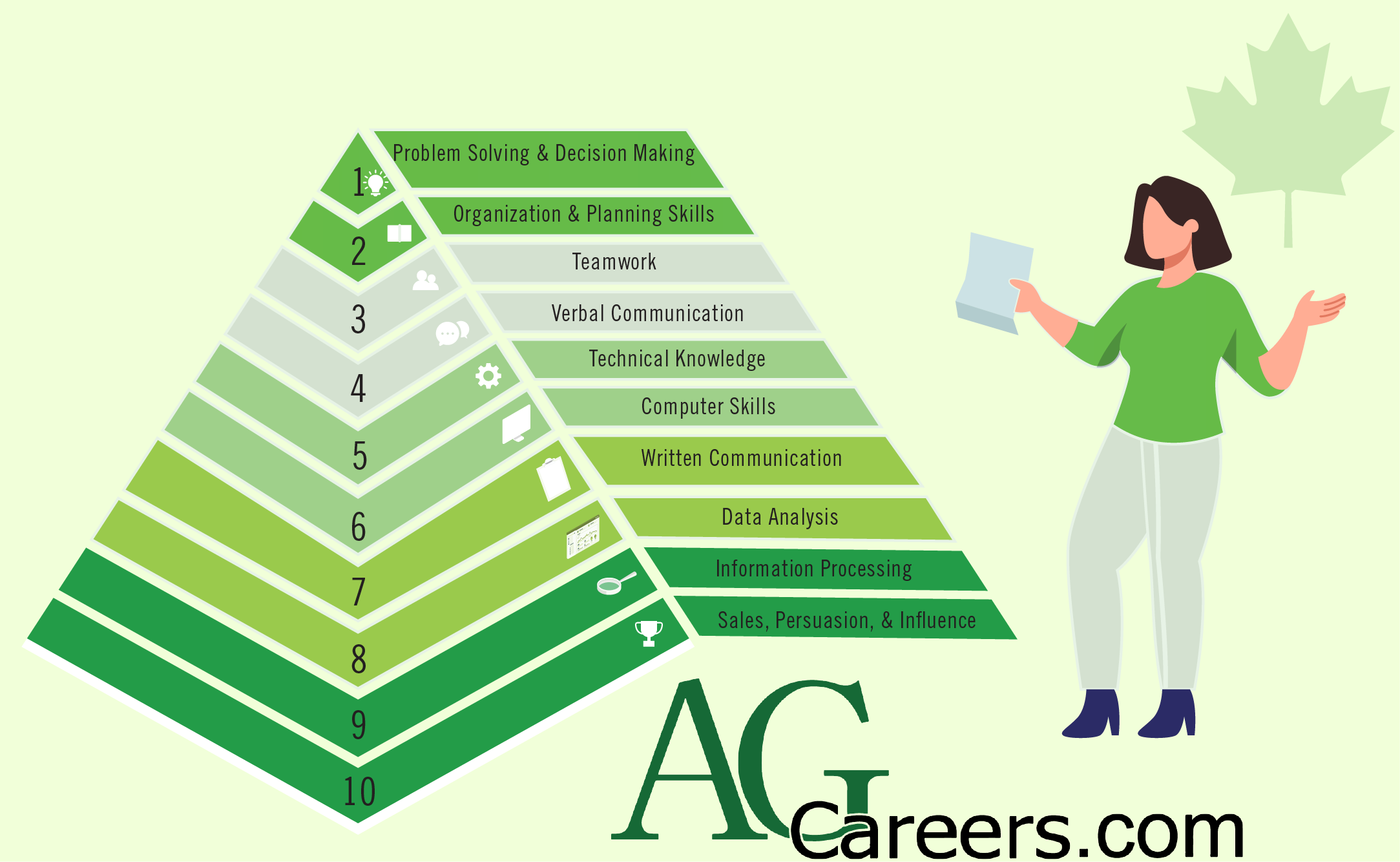- Candidates
- Login
- Set Up Account
- Create a Job Alert
- Search Tools
- Resources
- Employers

In the fast-paced world of Agriculture and Food employers in Canada, it’s a never-ending challenge finding suitable job candidates with the right skill. The AgCareers.com Canadian Employee Skills Survey aims to tackle this challenge head-on by providing insights into the skills employers are looking for and the skill gaps they face.AgCareers.com surveyed Canadian Agriculture and Food employers about work-ready skills and knowledge needed for new hires.
Skill Gaps & Needs
One significant finding of the survey is the preparedness gap between new graduate hires and experienced new hires. Employers noted that experienced hires tend to be more prepared with work-ready skills than new graduates. However, both groups have notable skill gaps, with Problem Solving & Decision-Making Skills, Organization & Planning Skills, and Technical Knowledge being the key areas for improvement.
In terms of the most and least necessary skills across all levels of employment, Problem Solving & Decision Making, Organization & Planning Skills, and Teamwork emerge as the top three most necessary skills. Conversely, skills like Data Analysis, Information Processing, and Sales, Persuasion, & Influence are considered the least necessary, indicating a shift in the industry's skills landscape.
Professional Development
Professional development emerges as a critical area for both employers and employees. More than half of organizations require professional development training, with many providing funding for such programs. Online Training, General Professional Training, and Technical Topics are among the most desired opportunities, highlighting the importance of continuous learning in the industry.
Soft skills are also in the spotlight, with employers emphasizing the importance of skills such as Change Management, and Verbal Skills. These skills are essential for navigating the industry's complexities and driving growth and innovation.
Knowledge Areas
The survey also explores specific knowledge areas crucial for Agriculture and Food sector employees. The most notable knowledge requirements were in Sustainability, and Agronomy & Precision Agriculture areas. The most useful topics in these fields were crop consulting, soil science, and understanding regulations. Additionally, Data Analytics, and Excel are seen as particularly useful for data science and digital agricultural knowledge.
Skill Needs
In conclusion, the 2023-2024 AgCareers.com Employee Skills Survey offers a comprehensive view of the skills landscape in the Canadian Agriculture and Food industry. By addressing the identified skill gaps and focusing on key areas of knowledge and development, companies can better prepare their workforce for the challenges and opportunities ahead, ultimately driving growth and innovation in the industry. Download your free copy of the full report here. https://www.agcareers.com/track-report-downloads.cfm?ID=127